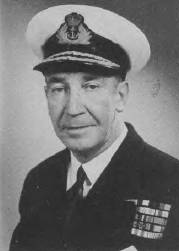- Author
- Smith, Sir Victor, K.B.E., C.B., D.S.C., Vice Admiral, RAN
- Subjects
- History - general
- Tags
-
- RAN Ships
- None noted.
- Publication
- December 1971 edition of the Naval Historical Review (all rights reserved)

There can be no doubt as to either the importance or interest of the study of history to those who follow or support the profession of arms at sea. For example, the true sailor has an equally great horror of war as the civilian and though interested in the technical conduct of operations, is no less interested in the problem of how to avoid them. History is a result of other people’s thoughts and actions and we can profit from their experiences. Again, it has been said that defence forces are successful only if they are never used. Although political and military requirements will change and although weapons and techniques will change, basic military principles do not change. The lessons gained from appreciating the application of those principles in the past can help us in the present and the future and guide us in shaping our forces so that they may be a successful deterrent. History, being to a large extent a study of people of previous times, can benefit the sailor greatly. For instance, when acknowledging Nelson’s brilliance, it is worthwhile knowing that records show that he fully realised that mutual trust between Admiral and Captains is an essential pre-requisite of victory at sea. Nelson took his captains into his confidence and not only did he win the hearts of his officers by trust, he also won those of his sailors by humanity.
A student once said that the more he read history the more it makes sense of the present. This is a true statement as a study of the R.A.N. will show. For example,the reason why the R.A.N. today continues many of the customs and standards of the R.N. is because our navy began as a result of the combination of British and Australian ideas. In a wider sense, the people of this country, from 1788 onwards, have seen from time to time their dependence on sea communications and the importance of seapower.




